Final round of the government's labor reform: Senate and House vote on conciliation after 27 months of processing

The labor reform is two steps away from being approved in Congress. Early this Friday, the Senate and the House of Representatives are expected to vote on the reconciliation of the bill, thus concluding more than two years of legislative process.
If the majorities of both bodies vote in favor, the approved text will be sent to the Casa de Nariño for presidential approval. Furthermore, President Gustavo Petro announced that he would repeal the controversial "decree" that called for the referendum , despite the Senate's rejection of this mechanism on May 14 by 49 votes to 47.
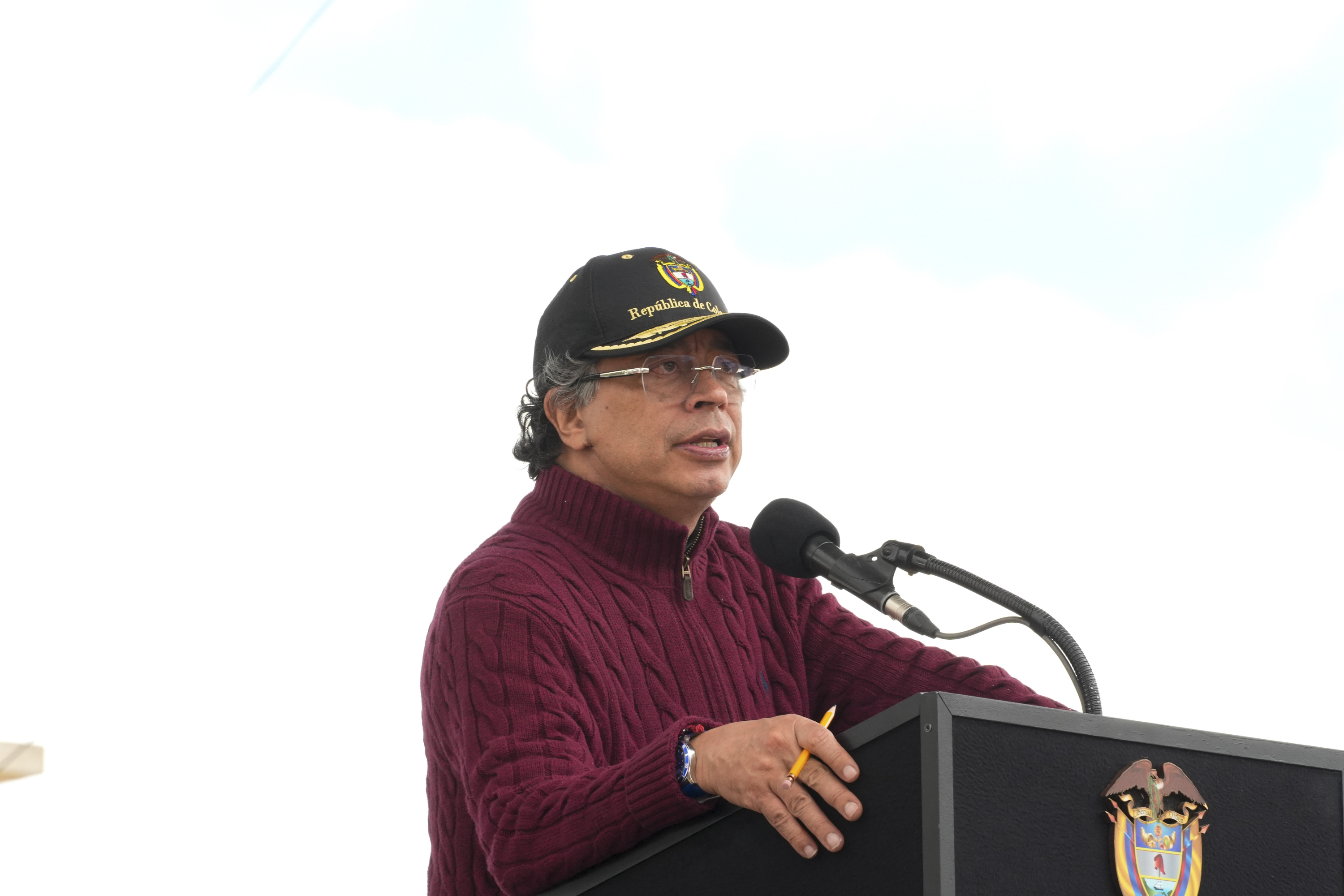
Gustavo Petro, President of Colombia Photo: Presidency
There were serious doubts about what might happen in the conciliation process, since, after the third debate in Senate Committee IV—where the bill arrived after its resurrection, approved by the plenary session—the government distanced itself from the initiative.
"With this article, the labor reform becomes a true counter-reform, one of the most backward we've ever seen," the president said, insisting at the time that this wasn't his reform, referring to an article that opened the door to hourly work.
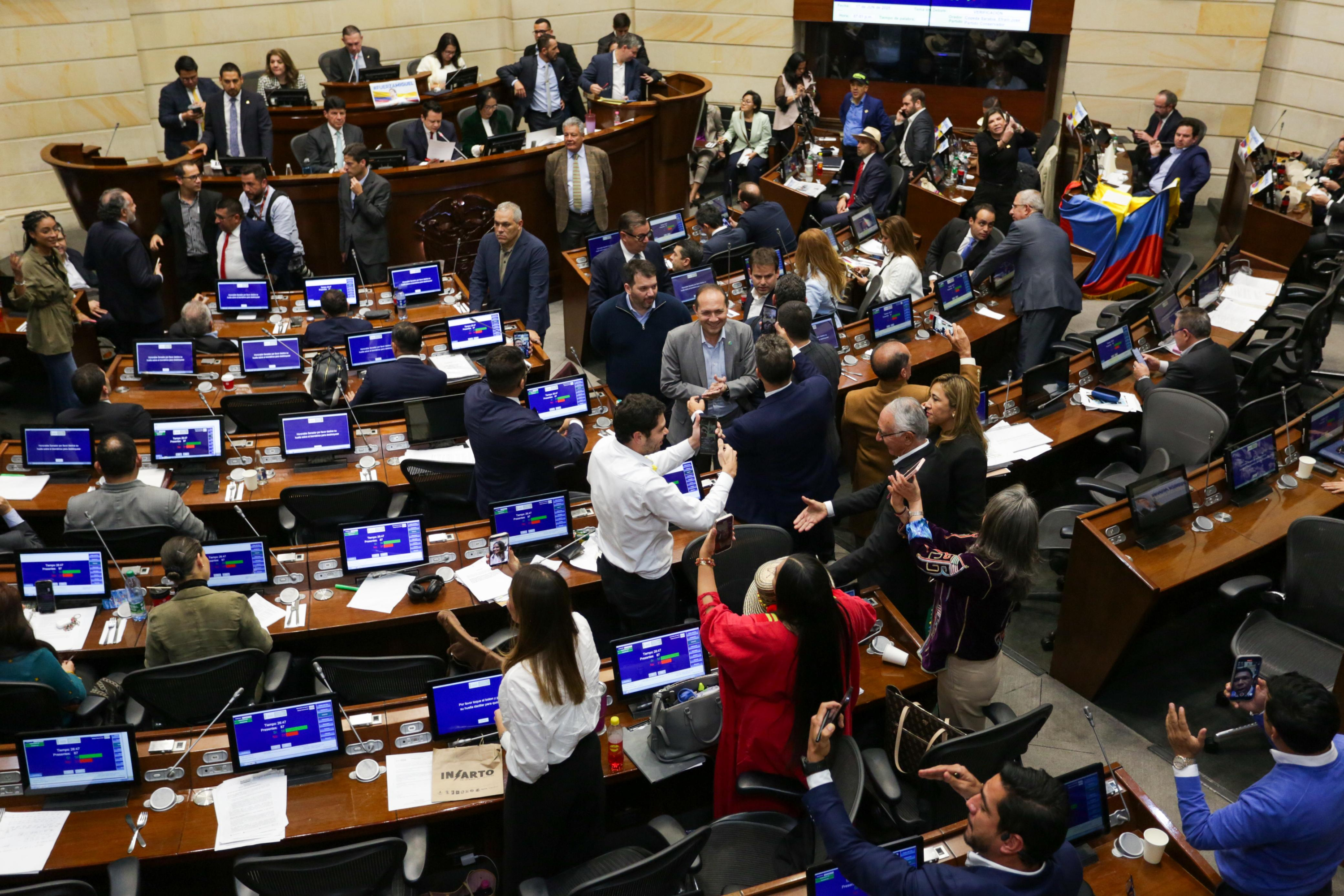
The Senate plenary session approved the labor reform. Photo: César Melgarejo/El Tiempo
The president even went so far as to state that if the reform were approved in the Senate, his government would insist on the text previously approved in the House, and if it failed to prevail in the conciliation process, they would insist on a referendum.
Armando Benedetti: "What was approved in the Senate is much more important." However, on Wednesday, after the Senate approved the initiative's fourth debate, Interior Minister Armando Benedetti noted that the bill was even more progressive than the House's.
"It's a great victory. What was approved in the Senate is much more important and progressive than what came out of the House. The achievements that were attained are true trophies for labor rights, for unions, among others. The achievement, the triumph, or the celebration depends on the conciliation, which must be announced between Thursday and Friday," he stated in an interview with this newspaper.
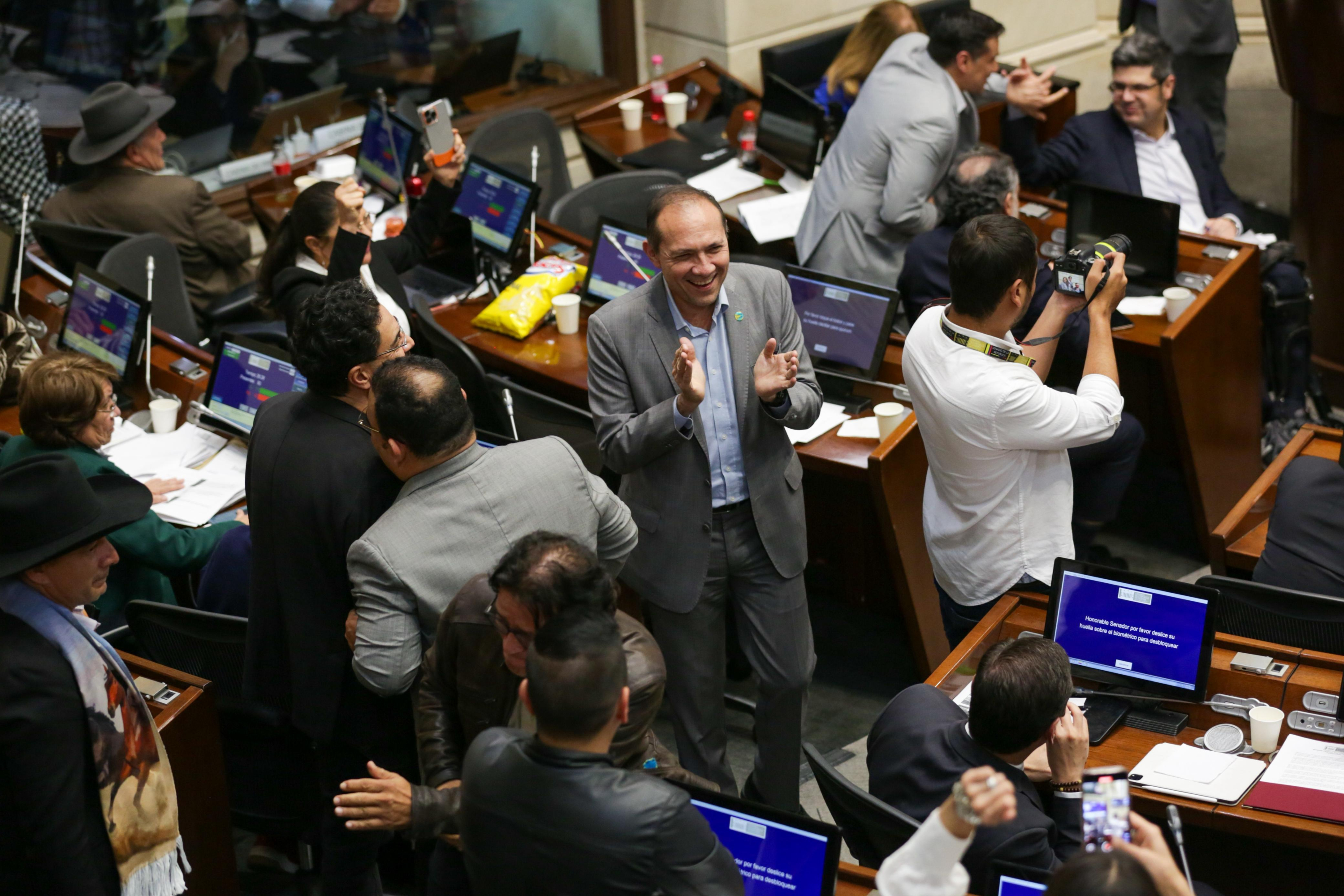
Minister of Labor Antonio Sanguino during the labor reform debate. Photo: César Melgarejo. El Tiempo
And the government seems to have been so pleased with this bill that the House speakers, allies of the Casa de Nariño, decided to adopt the same Senate text. The elimination of the section on hourly work was fundamental, as was maintaining payment for SENA students.
What was expected to be a long and drawn-out process, potentially jeopardizing the reform's completion by June 20—the deadline for approval, or it would fail again due to a lack of processing—ended up being a quick reconciliation in the halls of the Capitol.
The process took less than an hour. Efraín Cepeda , president of Congress, announced his conciliators —Carlos Abraham Jiménez (Cambio Radical) and Juan Samy Merheg (Conservative Party)—at 5:30 pm. After 6 pm, María Fernanda Carrascal (Pacto Histórico), conciliator of the Chamber, together with Juan Camilo Londoño (Alianza Verde), announced that they would accept the Senate's text.
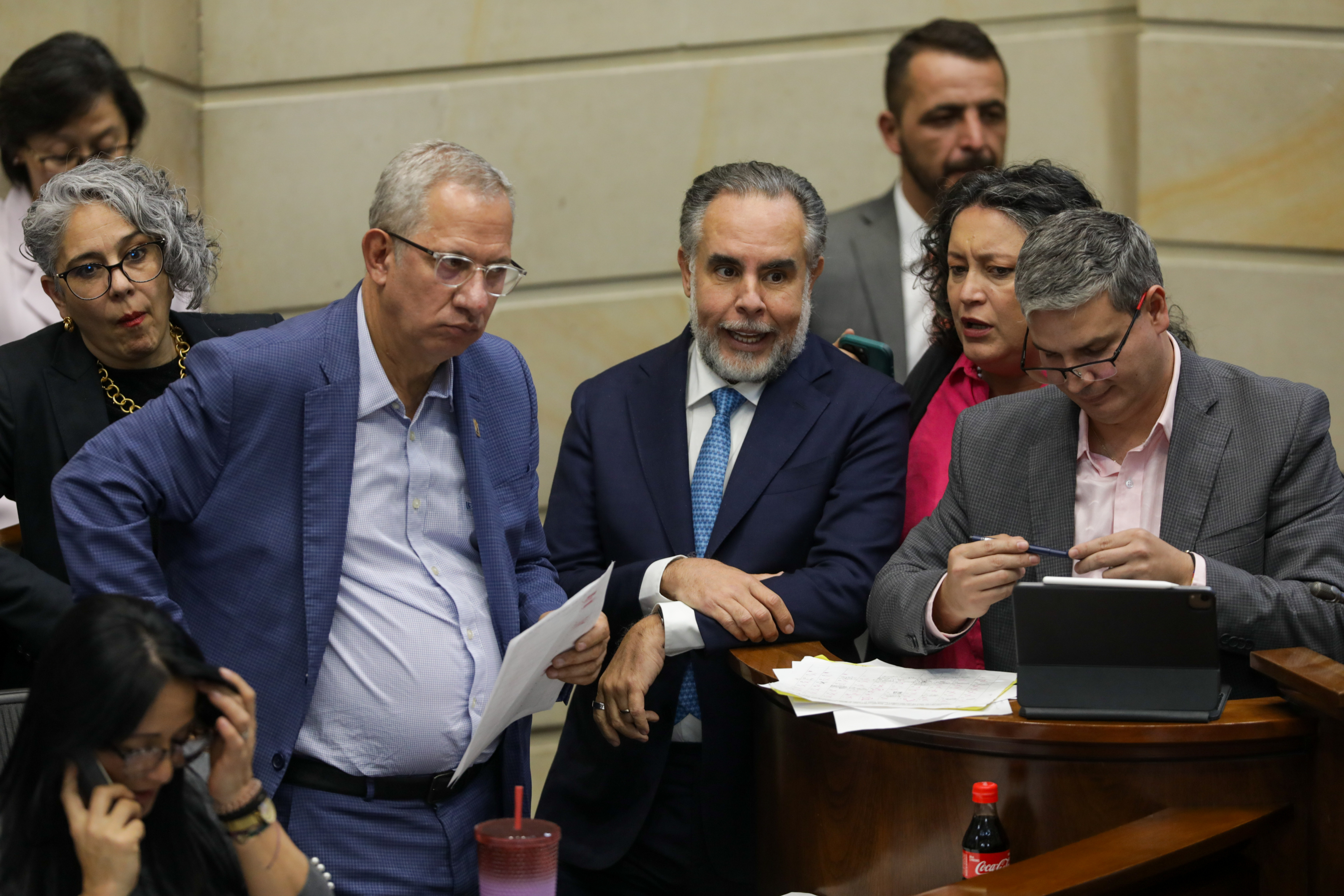
Labor reform debate in the Senate. Photo: César Melgarejo/El Tiempo @melgarejocesarnew
"Of the 70 articles approved, 66 fully preserve the spirit of the text we approved. Considering this result, along with the fact that some articles were even improved, the conciliators appointed by the Board of Directors of the House of Representatives have decided to adhere to the text approved by the Senate," the congresswoman stated.
But why was this the case, when the government and the Historic Pact insisted on the House's text at the beginning of the week? Congressional sources claim that the Senate had already conceded enough by reviving the reform and approving it in its essence, so they would only accept its text in the conciliation process. Faced with this situation, and considering the similarity of the bill, the House decided to give in and thus avoid shelving it.
This is how the labor reform process went: more than two years The labor reform process began on March 16, 2023, when then-Labor Minister Gloria Inés Ramírez filed the initiative. That same semester, the government presented health and pension reforms. The bill, however, collapsed in June of that same year due to a lack of processing in Senate Committee VII, where the health reform was prioritized. Furthermore, due to the end of the governing coalition in April 2023, the executive branch lacked the resources to advance the initiative.
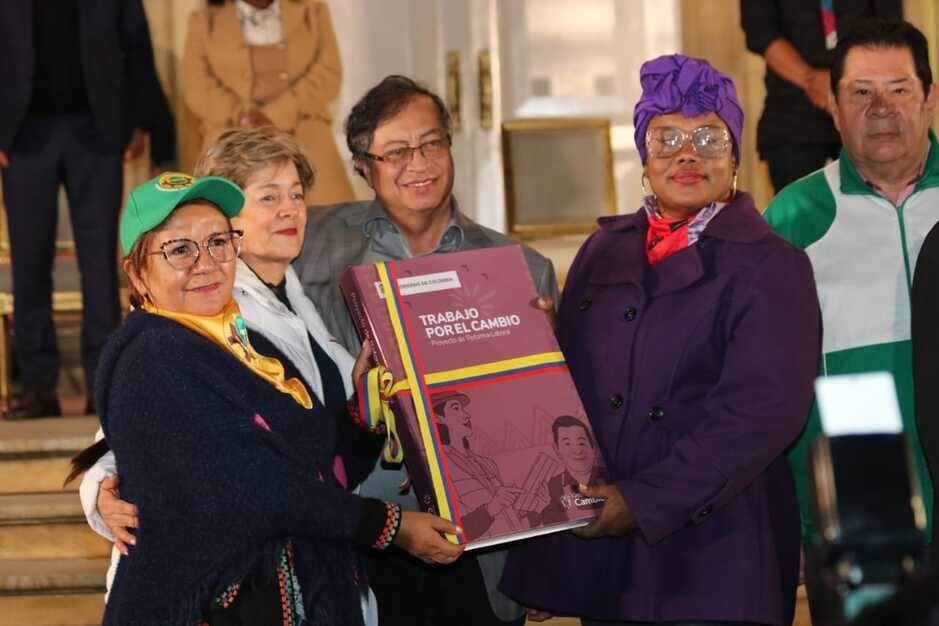
Filing of the labor reform in March 2023. Photo: Ministry of Labor Press
The new reform, which is about to be approved, was introduced on August 24, 2023. That initiative passed without major difficulties in the Chamber, where an agreement was reached to eliminate the chapter related to collective rights from the bill and limit it primarily to individual rights. On June 18, 2024, two days before it was sunk again due to lack of processing, Committee VII gave it the green light. On October 17 of that year, it was approved in a second reading.
The bill languished in the Senate until March 11, 2025, when eight senators signed the negative motion, effectively shelving it. That move was finalized on March 18. During that time, however, the government announced it would file a referendum in response to the Senate's refusal to approve the bill.
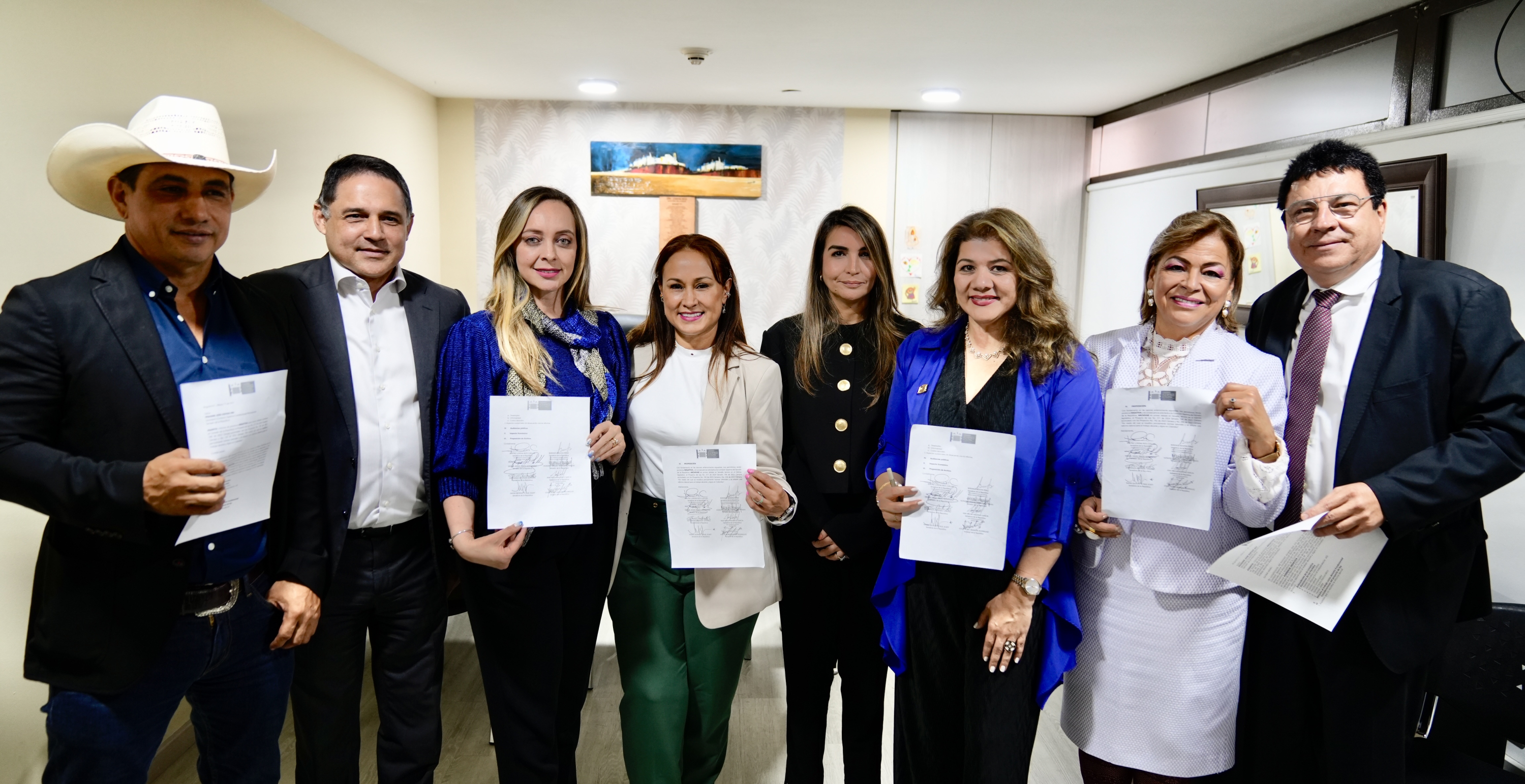
The eight senators who filed the negative report on the labor reform. Photo: Conservative Party Press
The bill was shelved until May 14, when the Senate decided to revive it as a way to avoid voting positively on the referendum. That day, within a couple of minutes of each other, the reform was revived and the referendum was rejected, despite the government's opposition.
Finally, the bill was fast-tracked through its final two debates in the Senate. It was approved in its third debate in Committee IV on May 28, and on June 17, it received the approval of the plenary session. Now, if it is finally approved this Friday, the ball—the term the president used when he presented the referendum—will be passed to President Gustavo Petro, who must sign it and, as announced, repeal the "decree."
You may be interested 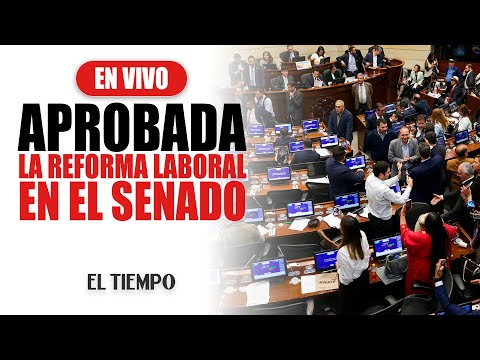
Analysis of the approval of the labor reform. Photo:
eltiempo





